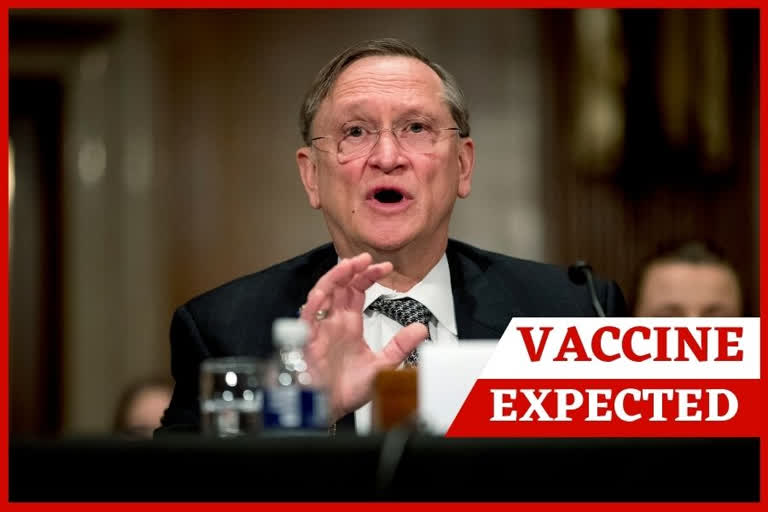Washington: A Trump administration official leading the response to the coronavirus pandemic says the US can expect delivery of a vaccine starting in January 2021, despite statements from the president that inoculations could begin this month.
And a growing, bipartisan chorus of lawmakers, experts and public health officials says the country is ill-prepared for a projected winter surge of COVID-19.
Dr Robert Kadlec said in an email Friday that the administration is accelerating production of safe and effective vaccines ... to ensure delivery starting January 2021. Kadlec is the Department of Health and Human Services' assistant secretary of preparedness and response. HHS says a vaccine could be approved before the end of the year but will take time to distribute.
President Donald Trump has said at rallies, debates and press conferences that a vaccine could arrive within weeks. “We think we can start sometime in October,” Trump said at a White House press briefing last month.
Kadlec wasn't the first health official to counter the president's optimistic timeline. Health and Human Services Secretary Alex Azar said Thursday that there could be 100 million vaccine doses available by the end of the year “pending FDA authorizations.” And Dr Moncef Slaoui, who is leading the government's vaccine effort, told Marketwatch on Friday that researchers could know “by late October, or November, or in December” whether one of the vaccines in development is effective, but that it would then take weeks to get emergency authorization to administer it.
When asked about the disparity, the White House was not specific on a date but said Trump’s priority is to distribute a vaccine “as soon as possible.” Kadlec said, without elaborating, that it wasn't correct to conclude that this meant the country couldn't see a vaccine sooner than January.
Kadlec was responding to a series of questions about the administration's response to the pandemic and, in particular, about shortages of critical medical supplies.
A breakdown in the supply chain for critical medical equipment including masks, gloves, gowns and ventilators hobbled the US response to COVID-19 and was likely a factor in the country's death rate, which is higher per capita than almost every other country in the world.
Read more:Michelle Obama goes after Trump
Experts say those shortages could now extend to the syringes, needles and glass vials that are vital to a future nationwide vaccination program.
Kadlec agrees that supply chain disruptions led to shortages. He said the administration needs more, consistent, flexible funding from Congress to shore up the Strategic National Stockpile of medical supplies and drugs and expand domestic manufacturing.
“There seems to be the universal consensus from both sides of the aisle in Congress, from the health care sector and the manufacturing base, that it is critical to move from a just-in-time manufacturing model to a more flexible and resilient domestic manufacturing capability,” he said.
Health experts have called for the same changes but say there’s a vacuum of federal leadership to implement them right now.
